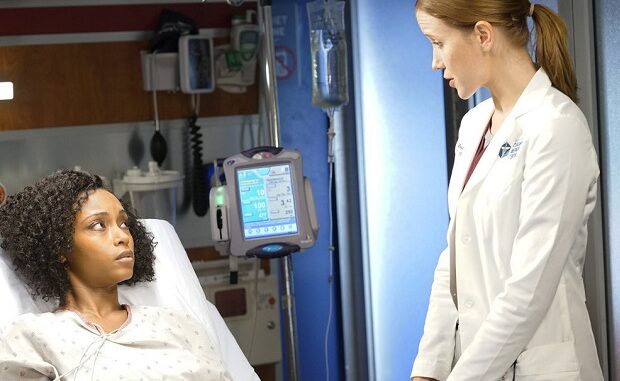
The Unseen Pulse: Chicago Med Returns for Season 11 Without Two Big Characters
The familiar rhythm of the city’s pulse, the siren's urgent wail, the controlled chaos of the emergency department – for ten seasons, Chicago Med has anchored a vital corner of Dick Wolf's sprawling television universe, drawing viewers into the high-stakes, emotionally charged lives of its dedicated healthcare professionals. Each fall, the anticipation builds for new diagnoses, fresh dilemmas, and the continued intertwining of personal and professional struggles. But as the eleventh season looms on the horizon, a different kind of buzz fills the air: the news that Chicago Med returns without two of its significant, long-standing characters. This isn't just a casting update; it’s a seismic shift, illustrating the inherent fragility of long-running serials, the profound attachment viewers form, and the enduring challenge and opportunity presented by narrative absence.
For the devoted fan, the news of beloved characters departing a show is akin to a personal loss. These aren't just actors on a screen; they are familiar faces, voices, and emotional anchors. We've witnessed their triumphs and failures, celebrated their love stories, mour and with them through their heartbreaks. A character like, say, a stoic Chief of Emergency Medicine or a compassionate, morally conflicted attending physician, becomes more than a role; they embody certain ideals, provide comedic relief, or are the linchpin of key relationships. Their departure leaves a gaping void, not just in the fictional hospital halls, but in the viewing experience. The morning coffee ritual suddenly feels different without anticipating their particular brand of wisdom or their signature banter. We mourn the potential storylines lost, the relationships left unresolved, and the emotional equilibrium of the ensemble thrown into disarray. It's a reminder of the one-sided, yet deeply felt, parasocial bonds forged over years of shared triumphs and tragedies.
From a narrative perspective, the absence of two prominent characters presents a double-edged sword for the showrunners. On one hand, it’s a massive challenge. Key relationships, the very bedrock of many storylines, are suddenly fractured. If one half of a beloved power couple departs, what becomes of the other? Will they find new love, embark on a journey of self-discovery, or simply fade into the background? Similarly, if a character crucial to the hospital’s hierarchy or its established medical philosophy leaves, a vacuum opens up that demands to be filled. The writers must meticulously recalibrate the narrative scaffolding, ensuring that the existing characters’ arcs still make sense, that continuity is maintained, and that the narrative flow doesn't feel disjointed. The unseen tremors of their absence can subtly reshape the show's entire dramatic landscape.
Yet, this very challenge can be the fertile ground for creative renewal. The departure of long-standing characters, while initially painful, forces a show to evolve, preventing stagnation. It opens up opportunities to elevate secondary characters who may have been overshadowed, allowing them to step into the spotlight and reveal new facets of their personalities. A previously quiet resident might finally find their voice, or a supporting nurse might ascend to a more prominent role, offering fresh perspectives and new dramatic possibilities. Moreover, the empty spaces created by these departures are an invitation for new blood – new doctors, nurses, or administrators who can bring different medical philosophies, personal histories, and relationship dynamics to the ER. These new additions can inject a vital shot of energy, spark new conflicts, and forge unexpected alliances, ensuring that Chicago Med remains vibrant and unpredictable rather than settling into a predictable rut.
Ultimately, the return of Chicago Med for Season 11, sans two big characters, is a poignant illustration of the delicate balance in television production. It underscores the commercial realities of a long-running series, the constant flux of talent, and the inevitable ebb and flow of fictional lives. But more profoundly, it speaks to the resilience of a well-crafted narrative and the enduring loyalty of its audience. While the familiar faces will be missed, the pulse of Gaffney Chicago Medical Center continues to beat, propelled forward by the dedication of its remaining cast and crew, and the unwavering belief that stories of life, death, and human connection, even with new faces at the forefront, will always find their way to the heart. The true test, and indeed the exciting promise, lies in watching how Chicago Med harnesses these absences not as a diminishment, but as a catalyst for a compelling new chapter.
